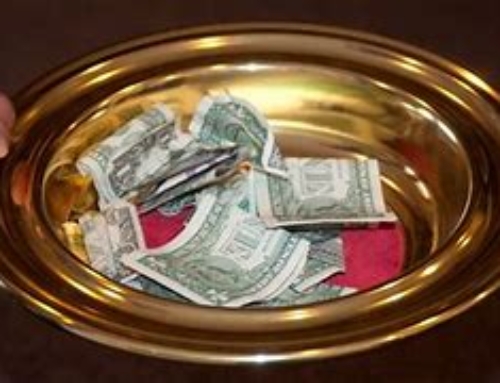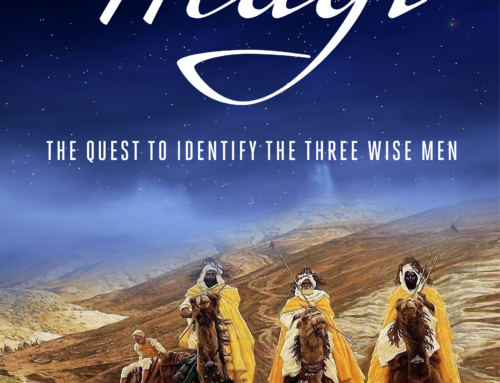From the moment of his appearance on the balcony of St Peter’s, conservative Catholics have been uneasy about Pope Francis.
It has not improved since then.
Conservatives have been disturbed by his non-judgmental attitude to homosexuals, his ambiguity about Protestants and re-married Catholics receiving communion and his squishy interviews with the atheist journalist Eugenio Scalfari.
Some believe the pope cares more about environmental and political issues than the core gospel message. In blogs and books his critics have called him out for not answering the questions of conservative cardinals. They lashed him for seeming to prop up the lavender mafia in the Vatican and castigated him for saying God wills other religions, seeming to espouse universalism and getting rid of the death sentence.
The latest upset has been a documentary film which was edited to reveal that Pope Francis favors civil unions for homosexual couples and that the families of such unions are acceptable.
For those of us who are conservative minded Catholics this is a big deal. We want to love our pope. We saw St John Paul II and Benedict XVI as guardians of the Christian faith in a post-Christian and increasingly hostile world. Pope Francis seems to have let us down. What’s he up to, and how do we deal with a disappointing pope? How do we figure out Pope Francis?
Rationalization and Resistance
Various attempts have been made to deal with the present and unprecedented crisis. After the most recent public relations mess concerning civil unions, liberals crowed about “the Vatican changing Catholic teaching at last!” Meanwhile, conservative apologists rushed to “clarify” the pope’s words, urge caution and encouraged giving Pope Francis yet more benefit of the doubt.
Other conservatives have come up with other solutions. For them it’s simple, Pope Francis is not the real pope. According to the theories, Pope Benedict either didn’t really intend to resign or his resignation was forced or faulty in some way. More extreme pundits accuse Francis of heresy and argue that this automatically invalidates his papacy. Therefore Benedict is still pope.
Others draw back from the heresy accusations. Wary of falling into the Donatist heresy themselves, they steer clear of actually saying Pope Francis’ election was invalid. However, they do believe he is heterodox and enmeshed in globalist politics, dubious theology and Vatican corruption.
Unsure quite how to resist, they voice their discontent through their favorite websites and YouTube channels, and if they can, they take refuge in a conservative Catholic group that is more to their liking—maybe the Priestly Fraternity of St Peter, an Eastern Rite church, the Anglican Ordinariate or a local parish where the Latin Mass crowd hangs out.
Francis’ papacy has thrown some into even deeper waters. Unable to square what they believe to be a heretical pope with remaining a Catholic, they’ve joined the sedevacantists. For them not only is Francis a fake pope, but every pope back to Pius XII was bogus. The Society of St Pius X and some other Catholic sects offer them a home away from Rome. Still others, facing the same dilemma, have gone over to Eastern Orthodoxy— arguing that Francis’ papacy has proven that the Catholic position on the successor of Peter was mistaken all along.
Disappointment is usually the result of wrong expectations, and it’s my view that many of those who are unhappy with Pope Francis have had distorted and unrealistic expectations about the papacy from the start.
Dogma Divides—Right?
I have to lay my cards on the table. I’m sympathetic to the dilemma of my fellow traditional Catholics. Pope Francis is no John Paul or Benedict. He is difficult to figure out, and from a conservative point of view he’s a problem to be solved.
It was Rusty Reno’s recent book Return of the Strong Gods which helped me make sense of what is going on. Reno provides a critique of the current philosophical and political situation by first showing where we’ve come from.
His basic premise in the first part of the book is to show how anti-dogmatism was the trend after the second world war. Drawing on a range of thinkers, theorists and theologians, Reno shows how the movers and shakers in Europe and the USA decided that it was dogma that had plunged Europe into 500 years of war culminating in the two world wars of the twentieth century.
From the Protestant Revolution onward (the theory goes) we were killing one another because of dogma. It goes like this: “You believe this. I believe that. I’m right. You’re wrong. If a person is right he is good. If a person is wrong he is bad. What do good people do? They get rid of evil. Because you are wrong you are evil. Therefore I must get rid of you. Bang!”
The religious quarrels inevitably had an ethnic, economic and political dimension, so the cycle of resentment, retribution and revenge tumbled on until we didn’t even know why we were killing each other anymore.
And it was all, as they argued, the fault of dogma.
Reno gathers the evidence to show that across a range of disciplines, intellectuals decided if we were to survive and thrive, then dogma must go. The rise of philosophical relativism was one of the fruits of the anti-dogmatism ideology, and “no dogma” became the new dogma.
Curtain Rise on Vatican 2
The Catholic Church was not immune from the anti-dogmatic ideology. Her own battles against modernism were undertaken with the weapons of Pius IX’s Syllabus of Errors, the rise of Neo-Scholasticism and the oath against modernism. By the nineteen sixties many saw the defense mechanisms as fruitless— bringing about on the one hand an enforced, unthinking legalistic orthodoxy, and on the other hand bitterness and secret dissent from those who longed for freedom of thought.
The 1960’s answer was a new emphasis: “the pastoral approach.” Dogma didn’t need to be denied. It just had to be put aside or “re-interpreted” for a modern age. The pastoral approach would solve the problems. Instead of enforcing orthodoxy and sending in the Catholic thought police (which didn’t work anyway) why not just put the whole dogmatic thing on one side and focus on people instead?
Thus the Second Vatican Council, which was hailed essentially as a pastoral not a dogmatic council.
The pastoral approach seemed a brilliant solution. It solved the modernist problem because the modernists simply ceased to exist. They only existed as long as there was dogma to test them against. No dogma? No modernists. The Protestants were no longer a problem because it was only dogma that divided them from the Catholics, right? Tricky problems of moral theology also disappeared. Judgmental legalism was out. The pastoral approach was in.
Once dogma was put aside we could see that we were all one all along! The pastoral approach solved just about every problem. The Eastern Orthodox? Why can’t we all just get along? The Muslims, Jews, Hindus and Buddhists? Let’s just get together at Assisi and give peace a chance!
Pope Francis I
Why Assisi? Because St Francis could be drafted as the patron saint of the pastoral approach. He could be portrayed not as a harsh dogmatist, but a gentle, pastoral character, and that’s why Father Bergoglio took the name he did. Once we see Pope Francis as the consummate expression of the pastoral approach, everything else falls into place.
The pastoral approach means Pope Francis’ words and works will remain ambiguous, messy, somewhat squishy and sentimental. They’re not dogmatic. They’re from the heart not the head. They are written for a particular set of problems in a particular time and place. That’s what the pastoral approach is. It’s applicable and practical. It’s not universal, and it’s not binding.
Civil ceremonies for gay couples? It’s a pastoral solution. It’s practical and approachable and seems to be a win-win. It’s not dogmatic, advocates would argue, it doesn’t negate the timeless teaching on marriage. It’s just a practical measure.
Pope Francis himself would be appalled at the idea that anything he might teach would be construed as infallible. That’s not what he’s about.
Infallibility? That’s So Vatican I !
The problem with many conservative Catholics is that this is not what they were led to expect. By instinct and formation they believe the pope’s main role is to define and defend the dogma.
Sorry. Not this pope. That’s not how he sees his role. That’s not how he sees the Catholic Church either. He’s been trying to get that message across to us for last seven years. We’re supposed to be out there making a mess and “smelling like the sheep.” Virtually all of his controversial statements and actions have been the triumph of the pastoral approach over dogma. In fact, many of his actions (like his repeated interviews with Scalfari) can be understood as a deliberate attempt to undermine the dogmatic approach.
How much this is a good thing or not, and what the proper role of dogma is in relationship to the pastoral approach is the stuff for another blog post–which I’ll be writing shortly. In this article I’m not really taking sides, but simply explaining the situation. I fully accept that this is unsatisfactory to the Catholics who want the pope to be the master of dogma and the enforcer of orthodoxy, but the fact of the matter is, this pope is not that, and we might as well get used to it.
Adjusting Our Expectations
It is for the very reason that Pope Francis’ approach is purely pastoral and not dogmatic that conservatives who are worried about the pope should take a deep breath and relax a little. Do they disagree with one of his opinions? It’s not dogmatic. He doesn’t intend it to be.
Are they upset with the idea of civil unions for homosexuals? It’s just pastoral and practical. Don’t worry so much. Do they heartily dislike one of his interviews with Scalfari? one of his encyclicals? His political opinions? His stance on immigrants or the environment, economics or ecumenism? His latest tweet? Take it easy. If you don’t like it nobody’s making you sign the dotted line. The days of the Catholic thought police are over. It’s pastoral. It’s not dogmatic. You can disagree. It’s okay.
Even though Catholics deny it, most of us place too high a premium on every word that falls from the mouth of the pontiff. In this age of instant global communication it is difficult to sift through all the verbiage, and this is one very talkative pope!
Remembering Pope Francis’ pastoral approach should help us to put what he says in perspective. Much of what he says and writes may be a matter of his opinion, some that reputes to come from him may, in fact, be grist from the Vatican public relations mill. Much of it is ambiguous and vague and easily misconstrued. Other headlines about Pope Francis are deliberately distorted, badly translated and designed to put words in his mouth. He speaks to particular pastoral situations and circumstances with passion and conviction, but he’s not stating universally binding dogma in the precise, nuanced and measured way many Catholics have got used to.
Archbishop Schneider has pointed out that adjusting our expectations may also help correct a tendency to ultramontanism.
I think that popes should speak rarely, in part because the inflation of the pope’s words obscures de facto the magisterium of the bishops. By his continuous pronouncements, the pope has become the pivotal point for daily life in the Church. However, the bishops are the divinely-established pastors for their flock. In some way, they are quite paralyzed by an unhealthy papal-centrism.
The pope may be the Vicar of Christ on earth, but he is not a divine oracle. We love and respect the successor of Peter, but if a particular pope isn’t our cup of tea that’s all right. Maybe one’s disappointment with the pope will correct wrong expectations and help us to turn our eyes from the Vatican and turn them instead to Jesus Christ and his blessed Mother, roll up our sleeves and get busy preaching and living the gospel right where we are.
And that correction is something Pope Francis would no doubt heartily endorse.
Don’t forget. October is the month of my annual membership drive. If you can support the blog by becoming a Donor Subscriber please do. It helps me defray the expenses of the blog and keeps this site free of all third party advertising. Go here to learn more.







I guess I’ll go with Ed Feser’s take, in his blog post yesterday: “Pastoral” as a weasel word.
https://edwardfeser.blogspot.com/2020/10/pastoral-and-other-weasel-words.html
Indeed. I think some people are not discerning the ironic tone in my blog post. My attempt at explanation is not a defense of the merely pastoral approach!
Thank you for another thoughtful post. I value what you do and are fortunate enough to be able to be a donor subscriber. God Bless!
There’s one of two options here. Pope Francis is either a mediocre Shepard, leading a lukewarm and dying church into the 21st century, toward either some far off and future renewal or total obscurity. Or, the Pope is malicious, calculating and working to undermine church teaching in the hopes of achieving some kind of crunchy “world unity” or the United Nations of Church. I hope and believe it’s the former option, not the latter. In any event, he’s lead the flock into such confusion and ambiguity that it is hard to imagine the church attracting any new orthodox believers.
Why does it have to be either/or?
There’s actually a third option. Maybe this Pope is exactly who the Holy Spirit wants and is the man needed for this time.